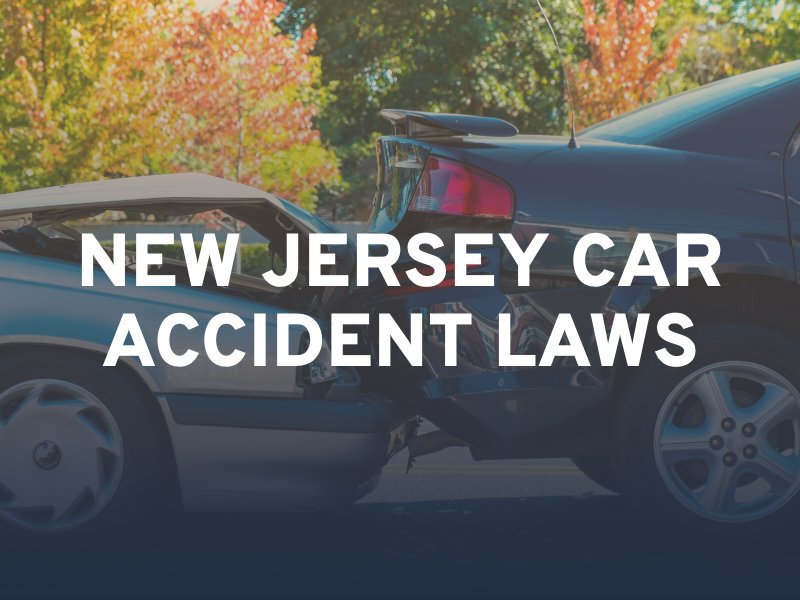A car accident is confusing enough for a victim even before the legal process begins. Serious personal injuries can impact every aspect of life, from enjoying daily activities to going to work. The last thing you may want to do is navigate New Jersey’s complex car accident laws on top of your injuries. It is necessary, however, if you wish to recover financial compensation for your losses.

Some New Jersey car accident laws apply immediately after the collision, such as your responsibilities as a driver. When you get into a car accident, you lawfully must pull over and remain at the scene until you have fulfilled your obligations as a driver.
Leaving the scene of a car accident before performing these tasks is the crime of hit-and-run in New Jersey. Committing a hit-and-run can result in penalties such as fines and jail time. It is mandatory to stop at the scene of the accident, exchange information with the other driver and call the police, if necessary.
One of the most important laws to know in New Jersey after a car accident is the no-fault insurance law. New Jersey is one of only a handful of states that use the no-fault insurance rule. Under this rule, drivers must use their own insurance policies to seek reimbursement for medical bills and property repairs, regardless of fault for the accident. All drivers in New Jersey must carry minimum amounts of insurance to provide this coverage.
The only time a driver in New Jersey may act outside of the no-fault law to bring a claim against another driver is after an accident that causes serious bodily injuries. These are injuries that cause permanent disabilities, losses of limb, significant scarring or disfigurement, or death. Only in these scenarios will an injured victim be able to file a claim with someone else’s insurance provider in a no-fault state.
If you do wish to bring a car accident lawsuit against another person or party, you have to act quickly. The clock is ticking on your right to file. New Jersey Revised Statute 56:9-14 gives claimants no more than four years from the dates of their accidents to file all personal injury claims, including motor vehicle accident claims. If you try to file after four years have passed, the courts will most likely refuse to hear your case. Your exact deadline may be longer or shorter, however, if your claim is an exception to the rule.
In car accident law, comparative negligence refers to an injured victim’s partial fault for an accident. If the victim who is bringing the claim breached a duty of care that contributed to the accident, such as driving drunk, or texting while driving or speeding, that person may receive less compensation from the other driver.
New Jersey’s comparative negligence rule does not follow the laws of contributory negligence. A contributory negligence rule bars a victim from recovery entirely for any degree of fault contributing to the accident – even 1%. In New Jersey, your own fault for the car accident will not bar you from recovery as long as you are not more responsible for the wreck than the other driver. If you are less than 50% to blame, you will still recover a portion of compensation from the other driver. The courts will reduce your award by your proportion of fault.
After an auto accident, consult with a Monmouth County car accident attorney as soon as possible for assistance navigating New Jersey’s laws.